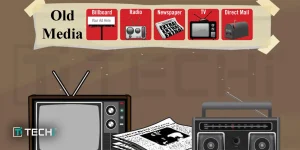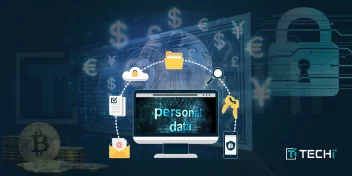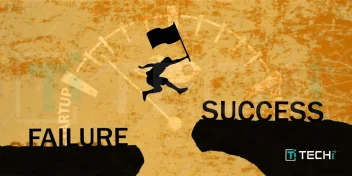Though we have, over the past few years, become accustomed to rather strange, aggressive ideas from those who run the movie and music businesses, the latest move from the RIAA and MPAA is a little astounding.
Today, the Electronic Frontier Foundation, an organization dedicated to defending internet users’ rights, outlined some of the suggestions made by the media conglomerates for protecting their content. They, along with many other players, were asked to weigh in on how intellectual property should be treated in a changing, networked world.
And you know what the MPAA and RIAA suggested? Well, among other things:
- Anti-infringement spyware to be installed on users systems
- Filtering technology on internet service provider’s networks to prevent the spread of copyrighted material
- ‘Inform’ and ‘educate’ (i.e. harass) entrants to the US about the ‘dangers of pirated material’
- Intimidate countries that do not agree with these policies, using US economic clout to threaten them
- Use federal resources to employ agents to crack down on copyright thieves
So, how does that sound? Having spyware installed on your system and monitoring what you’re watching? Having your ISP filtered and throttled so that the MPAA and RIAA can control what gets distributed around the internet? Super, right?
But it isn’t simply the stunning sense of entitlement and invasiveness that’s the issue here. There’s something bigger at stake than simply ‘this is not how you should treat your customers’.
What the RIAA and MPAA have failed to understand is that new technologies like the web don’t simply represent new ways to pirate material – they are part of a seismic change in culture. By failing to understand that this is a cultural and not only technological or economic shift, media businesses are on the brink of becoming obsolete due to an obsession with control.
Technically speaking, you might articulate the change in how we think of these things by talking about ‘the economics of scarcity’ vs. the ‘economics of abundance’.
See, physical media is hard and expensive to create and distribute – not only do you have to find the materials to press CDs or print books, you have to then distribute them on trucks and trains and what-have-you. This creates an economic system based on scarcity, or as we more traditionally think of it, supply and demand. Limited by physical constraints like materials and labor, you make a certain number of things and then you set the price based on how many people want that thing.
But when you switch to digital, this scarcity often disappears. An MP3 or movie file or eBook is just ones and zeroes. After the initial costs of creation are done with, creating a new copy costs almost nothing. Suddenly, things are abundant – there is no physical limit on how many of something can be made – and this changes things.
But that’s only the economic side of things. Culturally, there has also been a shift in how we think of accessing content like TV shows or films or music. Whereas once it seemed to make sense to save our pennies for new records or films, it’s now much harder to justify that expense because there is so much available for free, legitimately or not. You know this – it’s everywhere around the web, because no-one can control the spread of information.
People will often talk about this in terms of ‘stealing’ or ‘entitlement’ – which has it merits – but also misses the point. Once a person has experienced the freedom of something like Napster or Bittorrent, it’s hard to put that genie back in the bottle. It isn’t about ‘thieving’ as much as it is this: once you know what it’s like to access culture with such freedom, going back to the basics of plunking down 20 bucks for a iTunes movie you can’t copy, can’t take to your friends house or can’t watch on your PS3 not only feels strange, it feels plain backwards and absurd.

By attempting to replicate the scarcity model in the digital age, media businesses have made clunky DRM’ed products and have alienated consumers, and they are voting with their wallets. It might seem sensible to try crack down on consumers, but it’s like trying to nail jello to wall: you can’t do it, and it wasn’t a very good idea in the first place.
That may be controversial – and might even seem to support piracy – but that isn’t the case.
There are solutions to this problem, among the best of which is something like ‘monetizing the pipes’ – i.e. charge for the distribution. Another option is something like eMusic, which makes you pay a set amount for a certain number of MP3s a month. More options include what Mike Masnick calls ‘finding other scarcities’ like musicians making money from live shows and merchandise but giving the music away for free.
But the point boils down to this: the world has changed. The internet works on principles of openness and exchange, and information and content ricochet around at an amazing rate. You just can’t control that without unfairly limiting people’ experiences of the web. This is what the MPAA and RIAA have failed to understand. They are still working in a mindset that is based on scarcity – we have a limited amount of product, and we have to protect it – and that’s an ideal that certainly was noble and fair years ago.
But when culture and technology have changed so drastically, and digital information fundamentally works through copying and spreading, it’s also a naive one. Rather than trying to lock down the entire internet and the exchange of media, those concerned should be looking to establish new business models or new products that draw people in (like Avatar, for example).
After all, if they don’t, it’s not we who will lose. People will continue to create, and they will find ways to finance and distribute them using new tech. The MPAA and RIAA, on the other hand – well, it may already be too late for them and the lumbering dinosaurs who lead them.





chudez
It’s my opinion that the RIAA and the MPAA know very well that the world has changed and the market has evolved. They also know that they eventually need to shift their business model in order to survive.
But they also realize that in this moment of time, they still have the money and political clout to influence the emerging digital ecosystem. What they want is to cripple the new digital market in a manner beneficial to their interests; if they can subvert it entirely and maintain the status quo, all the better. They remember “the good old days” when they and only they controlled the production and distribution of media content.
I think you give the RIAA and MPAA too much credit: they’re not bumbling, clumsy dinosaurs; they’re cutthroat evil monopolists.
Gareth
@muniom
I agree totally. This articel kind of preaches to the converted. The fact is though that the guys that run the RIAA and MPAA don’t seem to want to find better alternatives.
Personally I am totally confused as to why the MPAA is even joining in with the RIAA over this. Movies still sell. Movies still have a “scarcity model” as in the cinemas to watch them. I love the excitement of going to a movie theatre with some friends and watching an awesome movie on a massive screen with amazing sound systems and even 3D if it has it. That experience cannot be easily replicated at home.
Music is dead easy to replicate at home. The RIAA should find their “cinema” equivalent … and they have one! Live shows! I wrote a blog article about this exact thing as well.
Graham
If I was a musical artist or band, with the quality of what technology is today, I would seriously think about making the music myself. Screw the record companies.
muniom
WE get it, as much sense as this article makes, we don’t need to be reminded of something we already know.
The difficult thing is making THEM (RIAA / MPAA) ‘get it’, and the only way they will even begin to listen, is with profitable alternative systems. It’s time to start doing their job for them and suggesting how they can still profit in this new age.
Liza
I second you on this, dude!
Brian
This is a reply to Stephen and Navneet Alang.
Really it doesn’t take a marketing genius to see a solutions to combat the growing problem of piracy. The infrastructure and solutions are already in place to give consumers what that want, which is free content right at their finger tips. On-demand services from various cable companies already provide TV Shows and movies for free, paid for by advertisers; YouTube stars give their content away for free and still make money from Adsense. Do you see the trend here? Advertisers will gladly pay good money to advertise their products and services on content that will get millions of views. Movies and music videos could easily be placed on Youtube or another video hosting site, streamed directly to consumers with the click of a mouse, giving them high quality content for free, all whilst the content provider will still generate revenue through advertisements which play intermittently throughout the viewing.
A similar approach could be applied to music, allow individuals to stream music directly to their computer, smartphone, and mp3 player for free, whilst simply playing a short 10 or 15 second radio-like advertisement before the playing of the song. The consumer would never actually have to download a song and the company providing the content would always have recurring revenue from individuals who may listen to a song over and over.
The entertainment industry has a lot of learning to do; by pursuing pirates all they do is waste time, energy, and resource; while in reality it’s creativity, resourcefulness, and ingenuity is what saves an industries, not force.
Jared
Sigue Sigue Sputnik, late 80’s avant garde art rock band was way ahead of their time. Their first record included ads in between songs for everything from makeup to fizzy drinks. The band faded into history, and so the idea died, but i think it’s time to give it another shot. Commercials on vinyl are static and immediately outdated. But with a web based model the spots could be updated and targetted. Great idea.